Principality Stadium: What do fans think of new drinking rules?
- Published

After more than a year of no fans because of Covid, they returned to the stadium in their droves during the autumn
"There's nothing wrong with accommodating those on an all-dayer, but it is the national sport and everyone should have the opportunity to be inspired."
This is the view of Dan Ley, who has been to Principality Stadium games he cannot remember because of drinking.
While he takes his children to watch the Ospreys and Neath, he has not felt comfortable taking them to Wales games.
He welcomed moves by the Welsh Rugby Union to address the issue.
It will serve weaker beer and close bars for the second half of games during this year's Six Nations tournament after a spate of incidents led one rugby writer to label the stadium "the world's biggest pub".
Another fan, Shelagh Davies, from Chepstow, called the changes "disappointing", adding: "It's a bit of a sop. A small token gesture that's not really going to settle what the problem is."
'I've been too drunk at matches'

Dan Ley wants internationals to be a great experience for everyone
Mr Ley is sceptical about whether the the two ideas being trialled are the best, and believes weaker beer may mean people drink more, and closing bars early may see spectators stock up.
He said he wanted a "safe and secure" environment for everyone and thinks separating families from those drinking could tackle the issues.
"There have been stories of children being vomited on, drunks running across the pitch. If you want to go on an all-dayer, there can be sections where you can do it," the 35-year-old from Swansea said.
"We're a small nation and with 70,000 seats, there should be enough room to accommodate everyone."
Mr Ley admitted he had two experiences ruined by his own drinking - a game versus Australia he can't remember, and a match against Scotland where he fell asleep.
While he is "a bit older and wiser now", and paced himself during his latest trip to see Fiji in the autumn, he is acutely aware of the need to make the experience special for everyone, not just those drinking.
Mr Ley is a coach with Rugby Works, external, a charity which uses the sport to help disadvantaged people.
Through his work, he said he had found the more involved youngsters were in a rugby club, the more positive their future can be.

The Principality Stadium is within a stone's throw of Cardiff pubs
"To inspire them, we go into schools, but there's something special about going to the Principality Stadium and seeing your heroes in the flesh," he said.
"Through the years people talk of seeing the likes of JPR, Neil Jenkins, Ieuan Evans.
"This won't happen if you make it inaccessible to certain sections of society."
'You may as well be in the pub'
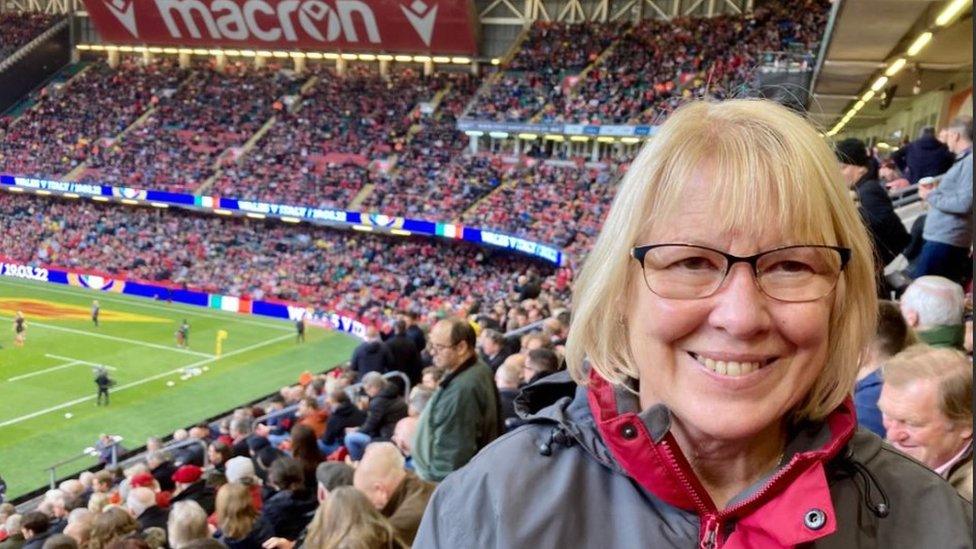
Shelagh Davies and her husband have paid around £600 for Wales' three home games against Scotland, France and Italy this year
Shelagh Davies has had a debenture seat, external at the stadium since it opened and believes the WRU has taken "the easy way out and not grasped the nettle".
She said drinking problems were "just getting worse", and described having to repeatedly stand up to allow fans who are late to pass, and again when they want to go to the bar or the toilet.
Mrs Davies believes bars should be closed for the whole match, adding: "We have had people sat in front of us whose eyes have not left their phones the whole match.
"They've just been drinking, looking at their phones.
"Quite frankly, you may as well be down the pub with your mates having a good time."
Why are the changes being made?

Joey was vomited on by a drunk fan, leaving him in "floods of tears"
There have been reported drink-related issues at the stadium for a number of years, such as a disabled fan being abused during the Wales-New Zealand game in November 2017.
A year later, the WRU introduced an alcohol-free zone, with 4,200 dry seats, which has become a permanent fixture.
However, in the autumn, there were calls for measures to go further after incidents in all four matches, culminating in a six-year-old boy being vomited on.
Joey was left "in floods of tears" after the incident, which left him with vomit "all over the back of him, his coat, over me and on the floor", his mother said, adding the person who did it was too drunk to even acknowledge it.
During the first game of the autumn series, a man dressed in a New Zealand All Blacks kit was able to get on to the turf and join the team's line-up for the national anthem.
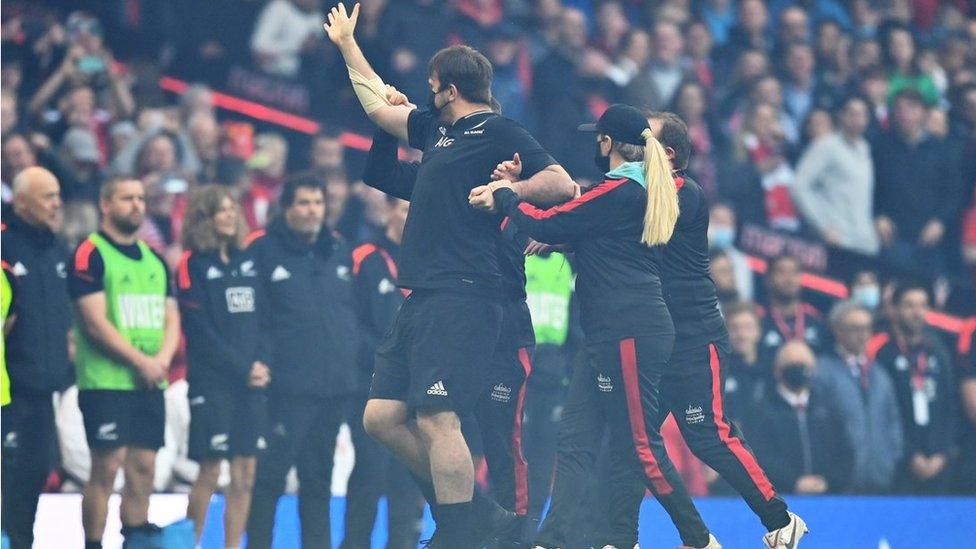
The pitch invader is escorted off the pitch before the Wales versus New Zealand match
Then, against South Africa, a spectator was tackled by stewards after running on to the pitch, and was later given a community resolution order by police.
For the Fiji match, a man described how supporters spilled beer, external all over his son.
However, as they were leaving, one of the man's friends gave the youngster £20 as he wanted things "put right".
'Traumatic'
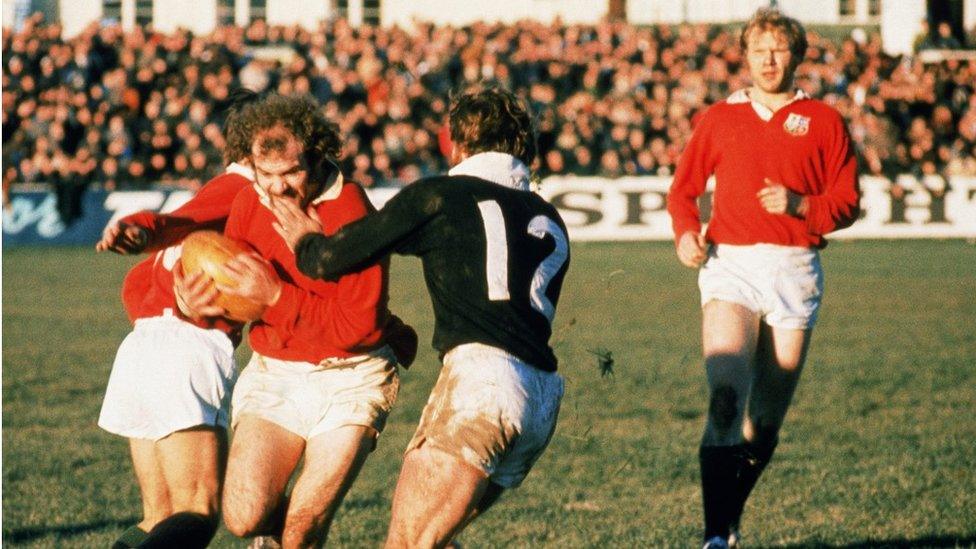
John Taylor won 26 caps for Wales between 1967 and 1973 and three for the Lions
Star of the 1970s John Taylor described being in the "privileged position" of only ever seeing Wales games from the press box, committee box or in the former players' area.
He said watching Wales against Australia last year among fans was so "traumatic", he "retreated" and left at half time to watch the match on television.
The former Lions flanker said he was asked to get up around 10 times for people passing with four-pint holders of beer, calling the atmosphere "chaotic and unpleasant".
"It's not a social occasion. I would not want people to not have a drink," he said.
"But when they start interfering with people's enjoyment like that, it was impossible."
But he said he would return for the Scotland game a week on Saturday, hoping the new rules will improve the atmosphere.

THE TUCKERS ARE BACK: They might not always be on the right side of the law, but who's telling?
LOVE LETTER TO WRESTLING: The best there is, the best there was, the best there ever will be

- Published23 November 2021
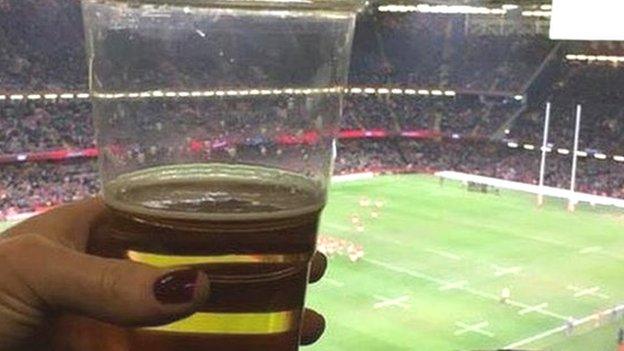
- Published22 November 2021

- Attribution
- Published12 November 2021
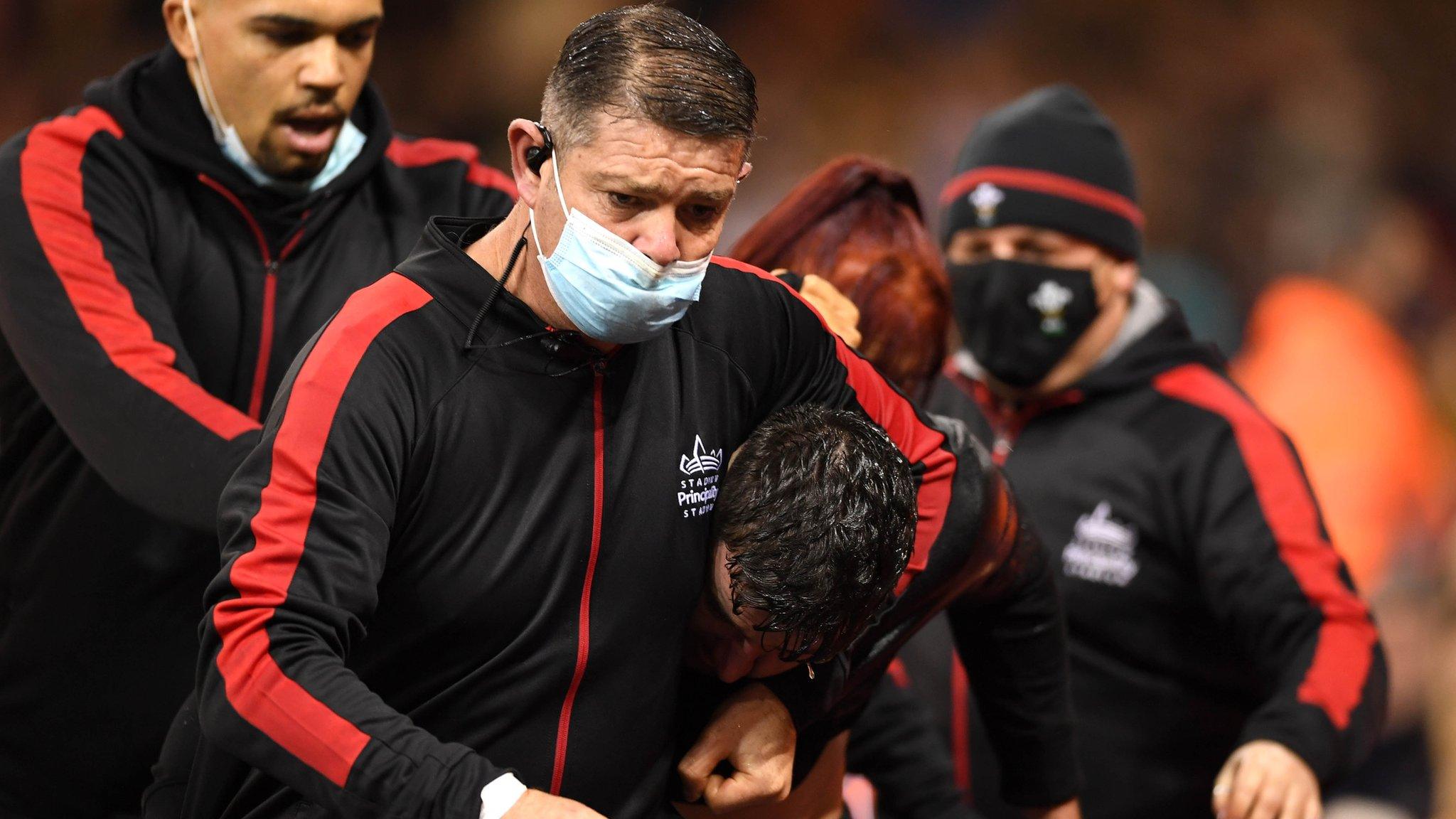
- Published24 November 2021
